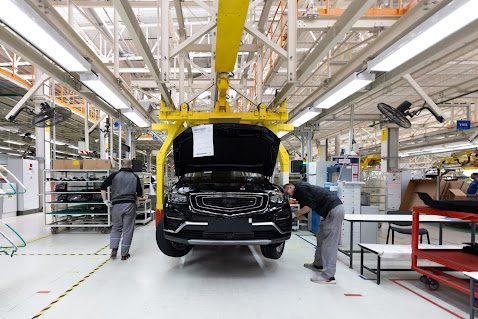In today’s fast-paced, tech-driven world, innovation doesn’t just depend on cutting-edge ideas—it also hinges on inclusive leadership. Abigail Mphephu stands out as a powerful voice in the engineering industry, not only for their technical expertise but for their relentless advocacy for diversity, equity, and inclusion in science, technology, engineering, and mathematics (STEM).
A Vision Rooted in Equity
Abigail Mphephu’s engineering career has been marked by milestones that extend far beyond technical contributions. As a dynamic professional in a field historically dominated by narrow representation, Mphephu recognized early on that creating a thriving, future-ready industry requires diversity at every level. They understand that innovation flourishes when people from different backgrounds, experiences, and identities come together to solve problems with a variety of perspectives.
Driven by this vision, Mphephu has made it their mission to elevate underrepresented voices within engineering and ensure that barriers to access are systematically dismantled.
Advocacy Through Action
Mphephu’s approach to diversity and inclusion is not limited to rhetoric—it’s grounded in action. They’ve worked closely with academic institutions to develop outreach programs that inspire and support students from historically marginalized communities. These efforts often include mentorship programs, scholarships, and networking opportunities designed to create lasting impact.
Their mentorship style is both personal and empowering. Rather than offering generic advice, Mphephu focuses on cultivating individual strengths, building confidence, and helping mentees navigate the complex landscape of engineering education and careers. This dedication has helped launch the careers of dozens of young engineers who now serve as role models in their own right.
A Voice on the Global Stage
As a sought-after speaker and thought leader, Abigail Mphephu regularly contributes to conferences, panels, and workshops that address both the technical and social dimensions of engineering. Whether discussing ethical AI, renewable energy, or workforce equity, Mphephu brings clarity, conviction, and compassion to every conversation.
They emphasize that diversity is not merely a social imperative—it’s a business one. “Companies that embrace diversity,” Mphephu often notes, “are not only more ethical—they’re more resilient, more innovative, and better prepared for the challenges of tomorrow.”
By framing diversity as an asset and demonstrating its real-world value, Mphephu has helped shift organizational mindsets, encouraging companies to rethink how they hire, retain, and empower talent.
Engineering for a Better World
Mphephu’s work isn’t confined to boardrooms and classrooms. At the core of their philosophy is a belief that engineering must serve humanity. From clean water systems in underserved regions to sustainable infrastructure projects, Mphephu has led initiatives that directly impact communities in need.
Their technical expertise in civil and environmental engineering has contributed to several successful projects focused on renewable energy, resource management, and climate adaptation. Each project reflects Mphephu’s holistic approach: integrating social equity, environmental stewardship, and economic feasibility into one cohesive strategy.
Role Model and Changemaker
Abigail Mphephu’s leadership style is defined by authenticity, empathy, and a deep-rooted belief in justice. Colleagues often describe them as a “transformative presence”—someone who listens with intention, leads by example, and never loses sight of the people behind the process.
For young professionals in engineering, Mphephu represents the possibility of being both technically brilliant and socially conscious. Their story is a powerful reminder that engineers aren’t just builders of infrastructure—they are architects of a better, fairer future.
The Road Ahead
While progress has been made in making engineering more inclusive, challenges persist. Abigail Mphephu continues to push boundaries, advocating for systemic changes in hiring practices, educational pipelines, and workplace cultures.
They are currently working on a series of initiatives aimed at expanding access to STEM education in rural communities and creating collaborative platforms for professionals from underrepresented groups to share knowledge and opportunities.
In every endeavor, one thing remains constant: Mphephu’s unwavering commitment to equity, excellence, and empowerment.
Conclusion
Abigail Mphephu is more than an engineer—they are a catalyst for change in an industry at a crossroads. By blending technical skill with social consciousness, they are redefining what leadership looks like in engineering and inspiring countless others to follow in their footsteps.
Through mentorship, advocacy, and innovation, Mphephu is not only transforming how we build systems—but also how we build communities, opportunities, and futures. As we look toward the challenges of the next decade, voices like Abigail Mphephu’s will be essential in ensuring that engineering truly serves everyone.



.jpg)
.jpg)

.jpg)
